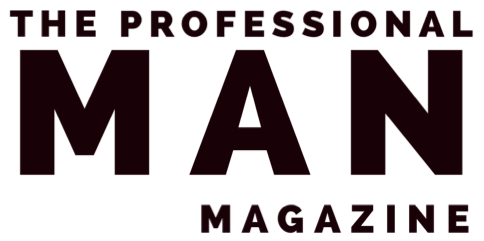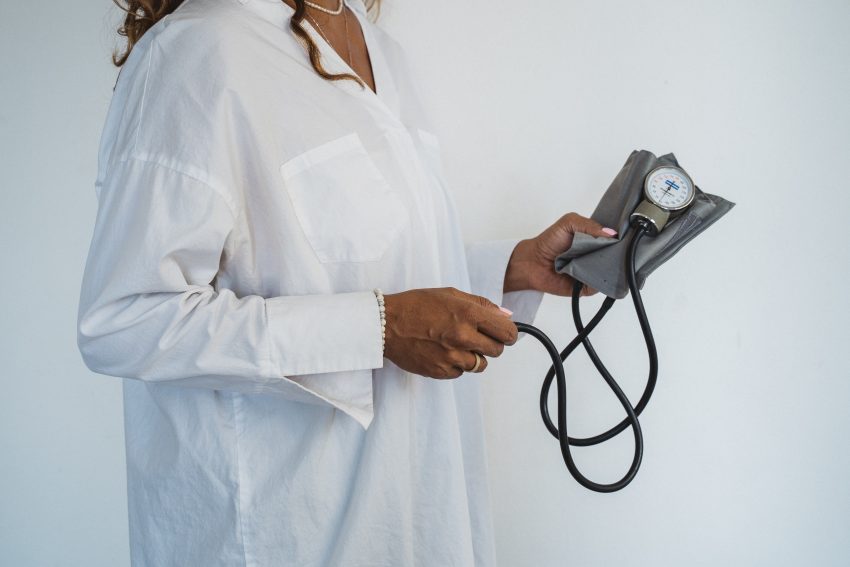High blood pressure, also known as hypertension, is a common condition affecting millions worldwide. It occurs when the force of blood pushing against the walls of the arteries is consistently high. This pressure can cause damage to the arteries and other organs in the body, leading to serious health complications. This article will explore what it is, its causes, symptoms, and effects of high blood pressure, as well as several medical and natural remedies that can help manage this condition.
What is High Blood Pressure?
High blood pressure occurs when the force of the blood pushing against your artery walls is too high. The arteries carry oxygenated blood from the heart to other parts of the body. When there is too much pressure on these vessels, it begins to strain the heart and can cause serious damage over time if left untreated. Medical professionals measure this pressure using two numbers, known as systolic and diastolic readings. A normal reading would be considered anything between 90/60 mmHg (millimetres of mercury) and 120/80 mmHg, with anything above 140/90 mmHg considered too high.
Blood Pressure stages
Blood pressure is the force of blood pushing against the walls of the arteries as the heart pumps blood. The different stages of blood pressure are:
- Normal blood pressure: A normal blood pressure reading is typically around 120/80 mmHg (millimetres of mercury) or lower.
- Elevated blood pressure: Elevated blood pressure is a systolic reading (top number) between 120-129 mmHg and diastolic reading (bottom number) less than 80 mmHg.
- Stage 1 hypertension: Stage 1 hypertension is when the systolic blood pressure ranges from 130-139 mmHg, and the diastolic blood pressure ranges from 80-89 mmHg.
- Stage 2 hypertension: Stage 2 hypertension is when the systolic blood pressure is 140 mmHg or higher, and the diastolic blood pressure is 90 mmHg or higher.
- Hypertensive crisis: Hypertensive crisis is a severe increase in blood pressure with a systolic reading of 180 mmHg or higher and a diastolic reading of 120 mmHg or higher. This is a medical emergency and requires immediate attention.
It is essential to monitor your blood pressure regularly and consult with a healthcare professional if you have concerns about your blood pressure readings.

Causes of High Blood Pressure
Many factors can contribute to high blood pressure. The most common causes include genetics, unhealthy lifestyle habits, age, and medical conditions.
- Genetics: It can be inherited from your parents or other family members. If your parents have high blood pressure, you are also more likely to develop it.
- Lifestyle choices: Unhealthy habits such as smoking, excessive alcohol consumption, a sedentary lifestyle, and a diet high in salt and saturated fats can all contribute. These lifestyle choices can cause damage to the arteries, making it harder for blood to flow through them.
- Age: As we age, our blood vessels become less flexible, which can increase blood pressure. This is why high it is more common in older adults.
- Medical conditions: Certain conditions, such as kidney disease, diabetes, and sleep apnea, can also contribute to high blood pressure. These conditions can cause damage to the arteries, making it harder for blood to flow through them.
Symptoms of High Blood Pressure
High blood pressure is often called the “silent killer” because it does not usually cause any noticeable symptoms. Many people are unaware that they have it until it is detected during a routine check-up or until they experience serious health complications. Some of the signs that may occur when it is very high include:
- Headaches
- Dizziness
- Blurred vision
- Shortness of breath
- Chest pain
If you experience any of these symptoms or think you have an underlining condition, it is vital to seek medical attention immediately.
Effects of High Blood Pressure:
High blood pressure can have serious health consequences if left untreated. The most common effects include heart disease, stroke, kidney damage, and vision loss.
- Heart disease: High blood pressure can cause damage to the arteries that supply blood to the heart, leading to an increased risk of heart disease and heart attacks. Over time, high blood pressure can cause the heart to work harder than it should, leading to left ventricular hypertrophy. This condition can eventually lead to heart failure.
- Stroke: High blood pressure can also increase the risk of stroke by causing damage to the blood vessels in the brain. When the blood vessels in the brain become damaged, they can burst or become blocked, leading to a stroke.
- Kidney damage: Over time, high blood pressure can cause damage to the kidneys, leading to kidney disease or even kidney failure. This is because the kidneys are responsible for filtering the blood and removing waste products. When the blood vessels in the kidneys become damaged, they cannot function properly.
- Vision loss: High blood pressure can damage the blood vessels in the eyes, leading to vision loss or even blindness. This is because the blood vessels in the eyes are tiny and delicate. They cannot deliver oxygen and nutrients to the eyes when they become damaged.
Medical Remedies for High Blood Pressure
Several medical treatments are available for high blood pressure, and the most common treatments include medications, lifestyle changes, and surgery.
Medications
Several types of medications can be used to lower blood pressure. Some of the most common medications include:
- Diuretics: These medications help the body get rid of excess salt and water, reducing the volume of blood flowing through the blood vessels and lowering blood pressure.
- ACE inhibitors: These medications block the production of angiotensin II, a hormone that causes blood vessels to narrow, which can help relax blood vessels and lower blood pressure.
- Calcium channel blockers: These medications help relax the muscles in the blood vessel walls, which can help lower blood pressure.
- Beta-blockers: These medications help reduce the heart rate and the force of the heart’s contractions, which can lower blood pressure.
Your doctor will determine the best medication for you based on your health needs and medical history.
Lifestyle changes
Making healthy lifestyle choices can also help lower blood pressure. Some of the most effective lifestyle changes include:
- Quitting smoking: Smoking can cause damage to blood vessels and increase the risk of high blood pressure, so quitting smoking is an essential step in lowering it.
- Reducing alcohol consumption: Drinking excessive amounts of alcohol can increase blood pressure, so reducing alcohol consumption or eliminating it can help.
- Regular exercise: can help strengthen the heart and improve blood flow, which can help lower blood pressure.
- Eating a healthy diet: Eating a diet that is low in salt and saturated fats and high in fruits, vegetables, whole grains, and lean protein can help.
Surgery
In severe cases of high blood pressure, surgery may be necessary to remove blockages in the arteries or repair damaged blood vessels. This is typically only recommended when other treatments have been ineffective or when the risk of complications is high.
Natural Remedies for High Blood Pressure
In addition to medical treatments, several natural remedies can help manage high blood pressure.
- Exercise: Regular exercise can help lower blood pressure by strengthening the heart and improving blood flow. At least 150 minutes of moderate-intensity aerobic activity or 75 minutes of vigorous aerobic exercise per week is recommended. Examples of moderate-intensity aerobic exercise include brisk walking, swimming, or cycling, while vigorous-intensity aerobic exercise includes running or playing sports.
- Dietary changes: Eating a healthy diet low in salt and saturated fats can also help lower blood pressure. The DASH (Dietary Approaches to Stop Hypertension) diet is a well-known eating plan that has been shown to help. This diet emphasizes fruits, vegetables, whole grains, low-fat dairy products, lean protein sources and limits foods high in saturated fats, such as red meat and processed foods. In addition, reducing salt intake to less than 2,300 milligrams per day.
- Stress reduction: Stress can contribute to high blood pressure, so finding ways to reduce stress, such as meditation, yoga, or deep breathing exercises, can be beneficial. These relaxation techniques can help to calm the mind and reduce stress levels.
- Herbal supplements: Several herbal supplements have been shown to help lower blood pressure. Garlic has been found to have a mild blood pressure-lowering effect, while hawthorn has been used in traditional medicine to treat heart-related conditions. Fish oil supplements have been shown to lower blood pressure in some people, particularly those with high triglyceride levels.
- Acupuncture: Acupuncture has been shown to help lower blood pressure by stimulating the release of endorphins, which can help reduce stress and improve blood flow. Acupuncture is a traditional Chinese medicine technique that involves inserting thin needles into specific points on the body to stimulate healing and balance.
It is important to note that while these natural remedies can be effective, they should never be used as a substitute for medical treatment, and always consult with your healthcare provider.
Where to go for more advice
If you have high blood pressure, the first step is to see a healthcare professional who can check and monitor your numbers. If lifestyle changes and medications do not help, they may refer you to a specialist such as a cardiologist or endocrinologist. These specialists can offer further advice on managing your condition and keeping it under control. In addition, many support groups are available online that provide helpful tips and resources for those living with hypertension.
Conclusion
High blood pressure is a common condition with serious health consequences if left untreated. Fortunately, there are many medical and natural remedies available that can help manage this condition. If you are experiencing symptoms, it is crucial to speak with your healthcare provider to determine the best course of treatment for your individual needs.
Monitoring your blood pressure regularly and seeking medical advice if you have any concerns is essential. With the right treatment plan and lifestyle changes, it is possible to manage high blood pressure and reduce the risk of serious health complications associated with this condition.
Want to Know more?
Please find below some useful links:





